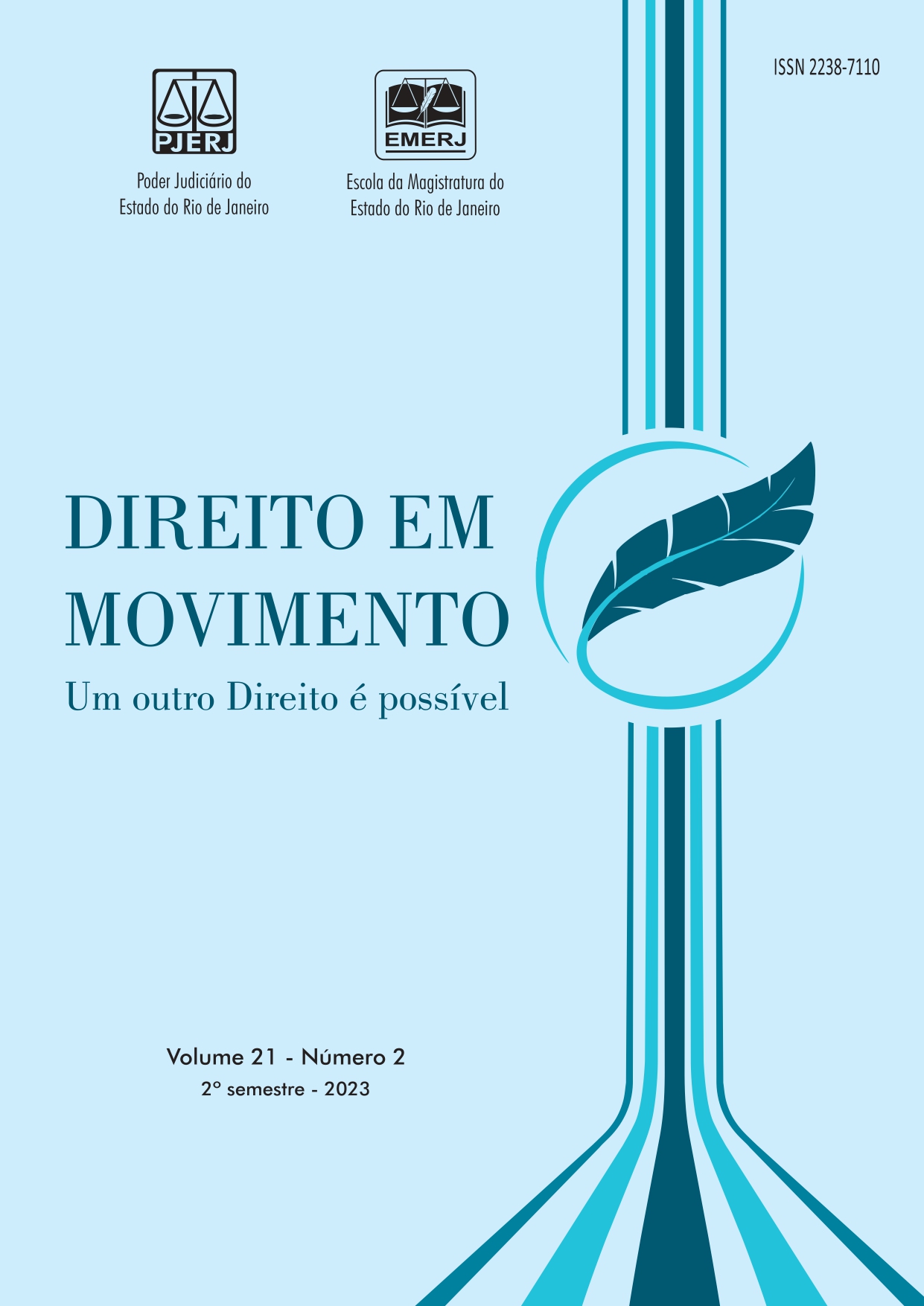The erosion of Constitutional Government
What lesson does Weimar offer?
Keywords:
Constitutional government, exceptional measures, authoritarianism, regression, democracyAbstract
The article aims to identify the main causes and conditions that fostered the rise of the Nazi Regime in the Weimar Republic, as well as to describe how the transformation from a Democratic State into a Totalitarian State occurred in the period between 1933 and 1945. After being defeated in World War I, Germany experienced a series of crises that imposed great suffering on the masses and led to a high level of distrust in the efficiency of the state and the parliamentary democratic model. This situation allowed for the ascent of the National Socialist Party, which questioned the order (not to change it) but to maintain it under the aegis of new actors. The article seeks to demonstrate how the legal system was gradually modified from within, through normative measures decreed by the Executive Branch, which established a Dual State, a combination of a Prerogative State (arbitrary and violent) and a Normative State (indispensable to the capitalist system). The new regime suppressed fundamental rights of all those who did not align with the Party or capitalist monopolies, without encountering effective resistance from other branches of power. Revisiting the topic is important in the early 21st century, as the military defeat of Nazism or fascism at the end of World War II (1945) does not seem to have represented the extinction of their ambitions or methods. Calls for "strong" governments or exceptional measures reemerge in electoral debates, on social media, or within democratic institutions. Legal practitioners must know how to identify the new authoritarian waves in their realities and be able to resist regressions.
References
ARENDT, Hannah. As origens do totalitarismo. Tradução: Roberto Raposo. São Paulo: Companhia das Letras, 1989.
BAUMAN, Zygmunt. Sintomas à procura de um objetivo e um nome. In: GEISELBERGER, Heinrich (org.). A Grande Regressão: um debate internacional sobre os novos populismos – e como enfrentá-los. São Paulo: Estação Liberdade, 2019.
FERRAJOLI Luigi. Prefácio da obra de Norberto Bobbio. Jusnaturalismo e Positivismo Jurídico. São Paulo: Editora Unesp, 2016.
FRAENKEL, Ernst. The Dual State: a contribution to the Theory of Dictatorship. United Kingdom: Oxford University Press, 2017.
GOUPY, Marie. L´état d´exception: ou l´impuissance autoritaire de l´État à l´époque du liéralisme. Paris: CNRS ÉDITIONS, 2016.
HOBSBAWM, Eric. Era dos extremos: o breve século XX. 1914-1991. Tradução: Marcos Santarrita. 2. ed. São Paulo: Companhia das Letras, 1995.
LAFER, Celso. Estados liberais. São Paulo: Edições Siciliano, 1991.
LAFER, Celso. A reconstrução dos Direitos Humanos: um diálogo com o pensamento de Hannah Arendt. São Paulo: Companhia das Letras, 2011.
REICHSTAG fire decree -Text. World future fund, [Alexandria], [2023?]. Disponível em: http://www.worldfuturefund.org/Reports2013/reichfire/reichfire.html. Acesso em 16 ago.2023.
SERRANO, Pedro Estevam Alves Pinto. Autoritarismo e golpes na América Latina: breve ensaio sobre jurisdição e exceção. São Paulo: Alameda Casa Editorial, 2016.
SCHMITT, Carl. O conceito do político. Tradução: Alexandre Franco de Sá. Lisboa: Edições 70, 2015.
Published
How to Cite
Issue
Section
License
Copyright (c) 2023 Alessandra Lopes Santana de Mello, Pedro Estevam Alves Pinto Serrano

This work is licensed under a Creative Commons Attribution 4.0 International License.
Authors who publish in this Journal agree to the following terms:
- Authors retain copyright and grant the Journal of Constitutional Research the right of first publication with the article simultaneously licensed under the Creative Commons - Attribution 4.0 International which allows sharing the work with recognition of the authors and its initial publication in this Journal.
- Authors are able to take on additional contracts separately, for non-exclusive distribution of the version of the paper published in this Journal (eg.: publishing in institutional repository or as a book), with a recognition of its initial publication in this Journal.
- Authors are allowed and encouraged to publish their work online (eg.: in institutional repositories or on their personal website) at any point before or during the submission process, as it can lead to productive exchanges, as well as increase the impact and the citation of the published work (see the Effect of Open Access).

















